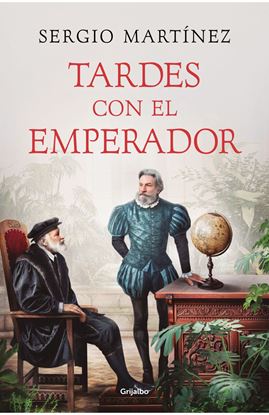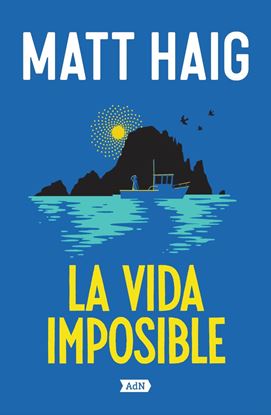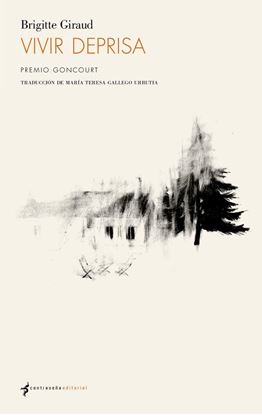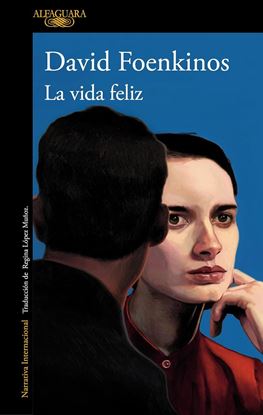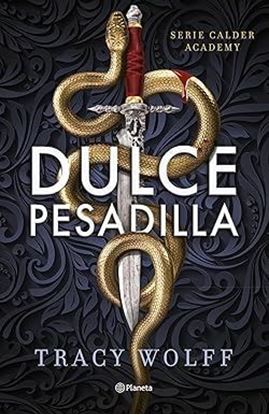

TARDES CON EL EMPERADOR
Siglo XVI. Después de una existencia dedicada a conquistar nuevas tierras a golpe de espada, fuego y lágrimas, Martín del Puerto acude al monasterio de Yuste sin saber que su destino se verá ligado al del emperador Carlos V. En ese apacible rincón alejado del mundo, el monarca ha decidido retirarse tras su abdicación ahora que su fin se acerca.
Los días de gloria han quedado atrás para los dos hombres, pero cada tarde quien fuera el rey más poderoso del mundo y el viejo marinero se sientan juntos para compartir confidencias y recuerdos. Mientras el emperador languidece, los relatos del intrépido explorador lo hacen viajar a aquellas lejanas tierras que le pertenecieron y que nunca llegó a pisar. Aventuras, desdichas y retazos de una travesía extraordinaria ilustrarán cómo las expediciones a las Indias no solo unieron dos mundos, sino también dos formas de concebir la vida.
1,350
1,080
LA VIDA IMPOSIBLE
La nueva novela del autor de La biblioteca de la medianoche
"Lo que parece magia no es más que una parte de la vida que todavía no entendemos..."
Cuando Grace Winters, una profesora de Matemáticas jubilada, hereda una casa desvencijada en una isla del Mediterráneo tras la muerte de una antigua amiga, la curiosidad se apodera de ella. Llega a Ibiza sin billete de vuelta, sin guía de viaje y sin planes.
Entre las colinas escarpadas y las playas doradas de la isla, Grace busca respuestas sobre la vida de su amiga y sobre cómo llegó a su fin. Lo que descubre es más extraño de lo que podría haber soñado. Pero, antes de sumergirse en esa verdad imposible, Grace debe reconciliarse con su pasado.
Repleta de maravillas y de aventuras, esta es una historia sobre la esperanza y sobre el poder de los nuevos comienzos para cambiarte la vida.
1,350
1,080
SOY PARTE DE TI
La prensa del corazón solo habla de Kane Black, un acaudalado hombre de negocios y formidable seductor. Pero bajo la máscara de adorado playboy se esconde un hombre atrapado en las garras de un dolor que lo consume. Desde la muerte repentina Lily, su esposa, Kane ha vivido como un fantasma, obsesionado con el pasado y totalmente indiferente a las perpetuas luchas de poder de su familia, los poderosos Armand-Black.
Pero todo esto cambia cuando Lily reaparece, muy viva. En los salones de la jet-set neoyorquina y la mansión de los Armand-Black las pasiones se encienden y desbordan a medida que los secretos se van revelando...
1,350
1,080
VIVIR DEPRISA
El martes 22 de junio de 1999, Claude, la pareja de Brigitte Giraud, sufrió un accidente de circulación, de resultas del cual falleció en el hospital esa misma noche. Más de veinte años después, la autora, impelida a vender la casa que compró con Claude poco antes del accidente, decide 'hacer por última vez un balance' que le permita 'cerrar la investigación', para lo cual reconstruye todos los hechos, circunstancias y decisiones que llevaron a que su pareja chocara con la moto que conducía contra un coche. Si el abuelo de la autora no se hubiera suicidado, o si Stephen King hubiera fallecido en un accidente que sufrió en 1999, o si la canción que Claude escuchó antes de salir del trabajo para ir a buscar a su hijo a la salida del colegio hubiera sido más corta (por citar solo tres de los hechos que reconstruye Brigitte Giraud), Claude, que conducía una moto potentísima que no era suya, sino del hermano de la autora, no habría chocado, a las cuatro y veinticinco de la tarde del 22 de junio de 1999, contra el 2CV que conducía Denis R. De esta forma, en "Vivir deprisa", con la que obtuvo el Premio Goncourt en 2022, Giraud nos muestra que hasta la decisión en apariencia más intrascendente o el hecho más ajeno en principio a nosotros pueden tener consecuencias imprevisibles y funestas para nuestra vida.
1,350
1,080
LA VIDA FELIZ
«Ninguna otra época ha estado tan marcada por el deseo de cambiar de vida. En algún momento de nuestra existencia todos queremos ser otra persona».
A sus cuarenta años, porciado y padre de un adolescente al que apenas ve, Éric Kherson es director comercial de una gran marca deportiva. A pesar de su éxito laboral, se encuentra al borde de la depresión, consumido por un drama familiar. Cuando una vieja amiga del instituto le ofrece un puesto en el gobierno, él acepta. Pero la alegría es temporal. Durante un viaje a Seúl para cerrar un importante trato, Éric se va encontrando cada vez peor. De repente, en una calle cualquiera, se topa con la tienda Happy Life, que ofrece a sus clientes algo que podría cambiarlo todo: un funeral falso.
1,350
1,080
DULCE PESADILLA (CALDER 1) ED. RUSTICA
La mayoría de las escuelas ansían ser las mejores, pero, ¿esta escuela? Esta ansía ser la peor. La Academia Calder es el lugar al que van los paranormales rebeldes, los que rompen las reglas o pierden el control. Y cuando se llena de vampiros, hombres lobo, brujas y faes, se vuelve bastante aterradora.
Yo lo sé mejor que nadie. Porque estoy atrapada aquí.
Toda chica de diecisiete años piensa que su madre es una tirana. Pero resulta que la mía dirige la Academia Calder, cosa que me ha convertido en una gran diana. La única manera que tengo de conseguir sobrevivir en estos oscuros pasillos es evitando las cosas (y los niños) que aparecen en mitad de la noche.
Especialmente Jude Abernathy.
Pero cuando una extraña tormenta azota nuestra recóndita isla, me quedo encerrada sin un plan B. No hay energía, todas las luces se han apagado… Y nuestras peores pesadillas de repente se han vuelto reales y están sedientas de sangre. Ahora, si quiero sobrevivir, debo aliarme con un mal para evitar otro peor, y, ¿qué puede ser peor que la idea de acercarme a Jude? Que en realidad y en secreto, amo cada minuto que paso con él.
1,350
1,080


